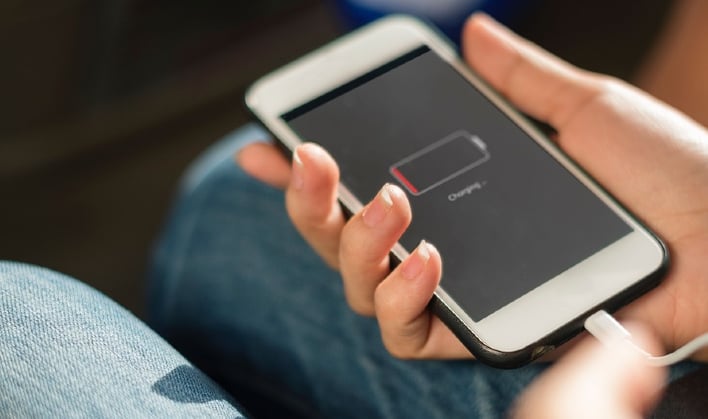Battery Material Breakthrough A Potential Game-Changer For Lithium-Ion Endurance

Anyone who has ever owned a smartphone can relate to how quickly the battery life can degrade on the device. A phone that seemed to last a full day on a single charge, can need charging half-way through the work day just a year or so later. However, new research from a team of scientists may have found a new material that will change how long your lithium-ion battery can retain its ability to maintain its full capacity for five years or more.
The scientists are part of the Japan Advanced Institute of Science and Technology (JAIST), as reported by EurekaAlert. They focused on the fact that the negative terminals inside lithium-ion batteries use graphite nodes, but also require a binder material to keep the graphite from falling off the inside of the battery.
Lithium-ion batteries today use the binding material known as poly(vinylidene fluoride) (PVDF). However, this material is not great when it comes to performance. This leads to a battery only being able to maintain about 65% of its capacity after just 500 charge-discharge cycles. This accounts for a smartphone only lasting about half the time of when you first purchased it.
The team with JAIST has discovered a new material called bis-imino-acenaphthenequinon-paraphenylene (BP) copolymer (say that five times fast). This new material allows for a battery to maintain 95% capacity for more than 1,7000 charge-discharge cycles. This would allow a battery to maintain a near full capacity charge for nearly five years, and possibly more.

Professor Noriyoshi Matsumi, who also led the study, states, "The realization of durable batteries will help in the development of more reliable products for long-term use. This will encourage consumers to purchase more expensive battery-based assets like electric vehicles, which will be used for many years."
While companies may not necessarily like the thought of consumers not needing to upgrade as often due to longer battery life, it would definitely be a huge win for the consumer. We simply have to wait and see if this new material is used and if it meets the expectations the scientists are providing.

